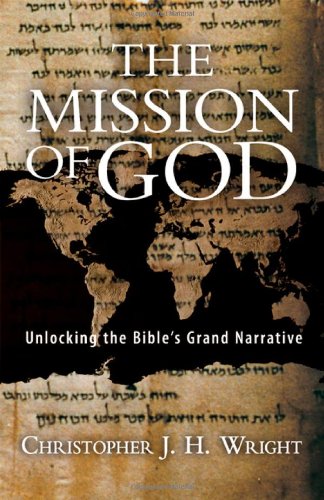A Brief Book Summary from Books At a Glance
By Steve West
Introduction
The Mission of God is regarded as a magisterial work. Wright carefully reads the Bible’s narrative through the lens of missiology, demonstrating how the idea of mission is embedded and develops throughout the canon. He maintains that the church’s mission is part of the mission of God. This book examines the idea of mission across the canon, but with a particular emphasis on the foundations for the mission of God as revealed in the Old Testament. The New Testament brings the antecedent revelation to a place of fulfillment.
Table of Contents
Chapter 1 Searching for a Missional Hermeneutic
Chapter 2 Shaping a Missional Hermeneutic
Chapter 3 The Living God Makes Himself Known in Israel
Chapter 4 The Living God Makes Himself Known in Jesus Christ
Chapter 5 The Living God Confronts Idolatry
Chapter 6 God’s Elect People: Chosen for Blessing
Chapter 7 God’s Particular People: Chosen for All
Chapter 8 God’s Model of Redemption: The Exodus
Chapter 9 God’s Model of Restoration: The Jubilee
Chapter 10 The Span of God’s Missional Covenant
Chapter 11 The Life of God’s Missional People
Chapter 12 Mission and God’s Earth
Chapter 13 Mission and God’s Image
Chapter 14 God and the Nations in Old Testament Vision
Chapter 15 God and the Nations in New Testament Vision
Book Summary
Chapter 1: Searching for a Missional Hermeneutic
Many have undertaken to provide a biblical and theological justification for Christian missions. This justification needs to be deeply rooted in Scripture, rather than in proof-texting. (It is not enough to quote Matthew 28:18-20 for everything related to missions.) We must be careful that we do not just look for texts that seem to support our preconceptions and current activities. Texts must be read carefully, and Western theologians need to hear the multicultural perspectives and interpretations of believers in the non-Western world (where the majority of Christians are now found). This diversity is not merely relativism, however. There are proper hermeneutical and theological methods that must be used to determine the author’s meaning. Jesus is the hermeneutical key to Scripture. The narrative leads up to him and then flows out from him. Reading the Bible through the lens of missions is not a disinterested approach, but it is not an illegitimate advocacy reading. All true liberation comes from the mission of God. The Scriptures have the kind of diversity and narratives that postmodernism favors, but it is actually the true story. It is not merely a narrative, it is the true grand narrative.
Chapter 2: Shaping a Missional Hermeneutic
The fact of the Bible’s existence is missional, since it is part of how God makes himself known. The New Testament was birthed out of the environment of missions. Much of the Old Testament also emerged out of engagement with the world. Missional emphases tie the canon together. A missional hermeneutic assumes, “the whole Bible renders to us the story of God’s mission through God’s people in their engagement with God’s world for the whole of God’s creation” (p. 51). The Bible is our authority for missions, not simply because it contains imperatives, but because it reveals the structure of reality in which we must operate. The OT shows us the reality of God, humanity (with the special emphasis on Israel), and the story of. . .
[To continue reading this summary, please see below....]The remainder of this article is premium content. Become a member to continue reading.
Already have an account? Sign In
